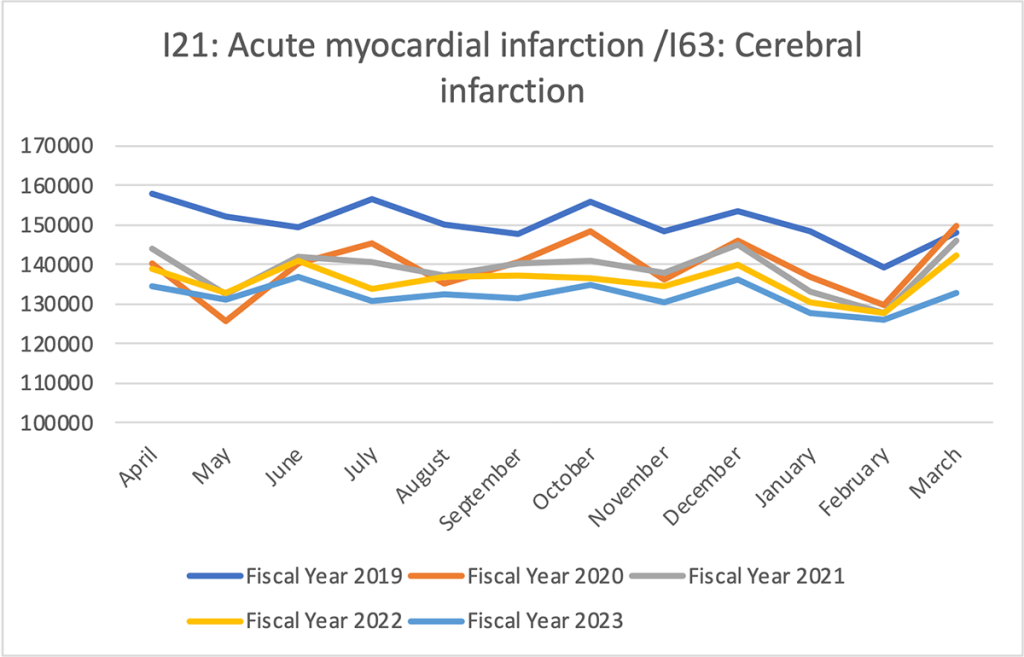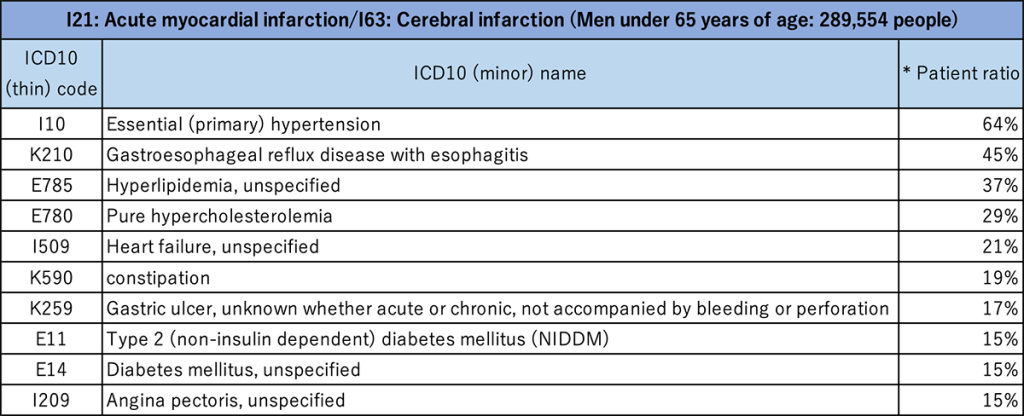News
Analysis of Medical Big Data over 5 years in Acute Myocardial Infarction and Stroke Cases shows Seasonal Surge in February and March
- March 7, 2025
Medical Data Vision Co., Ltd. (Headquarters: Chiyoda-ku, Tokyo; President & CEO: Hiroyuki Iwasaki), which operates Japan’s largest clinical database, has analyzed data on acute myocardial infarction and cerebral infarction. The study covers the period from April 2019 to March 2024, based on data from 377 medical institutions. The analysis includes monthly trends in patient numbers for both conditions, gender-based patient distribution in 10-year increments, and the proportion of comorbidities by gender for patients aged above and below 65 years.
Seasonality of Acute Myocardial Infarction and Stroke
- Our analysis indicates that 2019 saw the highest incidence levels, with a slight decline in subsequent years. However, seasonal trends remain consistent, with a noticeable surge in cases from February to March. This trend may be influenced by blood pressure fluctuations due to temperature variations, as well as stress and lifestyle disruptions associated with the end of the fiscal year.
- A significant drop in cases was observed in May 2020, likely due to the impact of the COVID-19 pandemic, including overwhelmed emergency medical services and hospital admission restrictions, which may have reduced opportunities for diagnosis and treatment.

High Prevalence of Hypertension as a Comorbidity in Patients Aged 65 and Above

- Comorbidities among patients without acute myocardial infarction or cerebral infarction differ by age group. For those under 65, acute infections such as upper respiratory tract infections and gastroenteritis are common. In contrast, chronic conditions such as hypertension, constipation, gastroesophageal reflux disease, and lipid metabolism disorders are predominant among those aged 65 and above.
- However, among patients aged 65 and above with acute myocardial infarction or cerebral infarction, hypertension overwhelmingly ranks as the most common comorbidity, followed by cardiovascular diseases such as heart failure, hyperlipidemia, and angina.
Comments from physicians in the field

Dr. Yuko Kato, Head of Heart Failure Department & Cardiac Rehabilitation Department, Cardiovascular Research Institute Hospital
Diseases such as myocardial infarction and cerebral infarction, which result from impaired blood flow, are known to be more prevalent during periods of significant temperature fluctuations. Sudden temperature changes can disrupt the autonomic nervous system, cause blood vessel constriction, and increase blood viscosity.
Many people also tend to reduce physical activity during winter. Engaging in regular exercise can help regulate the autonomic nervous system and enhance the body’s resilience to sudden temperature changes. Moreover, exercise is crucial for managing hypertension, the primary risk factor for myocardial and cerebral infarction. Aiming for a daily total of 30 minutes of brisk walking and maintaining an upper blood pressure level below 120 mmHg in a relaxed state is recommended.